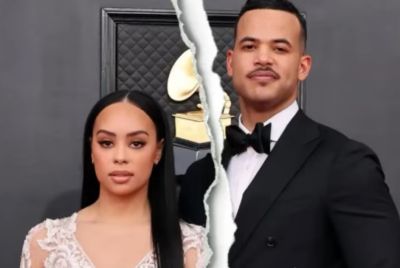'I Am Not Gay': Jeffree Star's Explosive Gender Comments Set Internet Ablaze
Make-up mogul Jeffree Star's viral interview has reignited a furious debate online

Jeffree Star's blunt repudiation of contemporary pronoun culture has ignited a fierce online backlash and renewed debate about celebrity influence on gender discourse.
Jeffree Star, the polarising make-up entrepreneur and internet personality, told an interviewer he is 'not gay' in the conventional sense and insisted he is 'just me', a remark that was streamed widely on YouTube and clipped across social platforms.
The comments, which also dismissed non-binary pronouns as unnecessary, were framed by Star as a personal rejection of labels rather than an attack on individuals. The remarks have provoked strong responses across social media and drawn attention from mainstream outlets reporting the wider controversy.
Interview Remarks and Immediate Reaction
In the interview uploaded to YouTube titled Jeffree Star: "I am NOT Gay, I Am Just Me!", Star told hosts he rejects the contemporary proliferation of gender labels and pronouns, arguing instead for a simpler categorisation that, he said, recognises 'man, woman or trans'.
He added that he identifies outside the 'gay' label and described his own identity as unique and not readily captured by existing terminology. Clips from the interview showing Star questioning non-binary pronouns and asserting 'I'm just me' circulated rapidly.
Supporters hailed the interview as a candid intervention that pushed back against what they call 'pronoun policing', while critics argued Star's language invalidated non-binary identities and fuelled stigma.
Online responses ranged from calls for accountability to defences noting Star's long history of performing gender non-conformity while simultaneously rejecting some contemporary identity labels.
Contentious Lines and Context
Star's interview included statements that went beyond personal identification, with him describing some pro-trans parenting practices as 'weirdos' and urging protection for women and children from what he characterised as harmful ideologies. Clips and secondary uploads highlighted these lines, amplifying the emotional tone of the discussion.
I appreciate Jeffree taking a principled stance knowing he will be attacked & ostracized by his own community.
— Alexander McArthy (@Alxmcarthy) November 19, 2025
Those critical of Star note the irony that his public persona frequently blends traditionally feminine presentation with self-identification as a man, creating a flashpoint in debates about who may speak on gender issues.
Isn’t it ironic you can hate your own community while being in full drag. Why are they able to go on a podcast and say bullshit and people take them seriously because they are fucking hating on themselves it’s weird af. Is he broke?
— yolk (@HesOnTheListBro) November 19, 2025
The interview must be read against Star's long public record of provocative commentary on sexuality and identity. Historical posts and interviews show a pattern of contrarian views on pronouns and gender, which makes the current remarks part of a broader trajectory rather than an isolated incident.
Public Backlash and Media Coverage
Reaction from the LGBT and allied communities was swift. Social media threads criticised Star for what many described as a dismissal of non-binary people's lived experience. Some commentators accused him of weaponising ambiguity, embracing gender non-conformity in style while denying emerging identity categories in discourse. Others called on platforms and advertisers to examine the implications of amplifying such rhetoric.
Star's remarks illuminate a larger cultural clash unfolding across Western public life, the tension between individual self-definition and collective efforts to recognise and protect marginalised identities.
For advocates, the concern is not merely semantics; it is the social and material consequences of delegitimising identities that some people claim as essential to their dignity and safety. For others, the proliferation of categories feels confusing and restrictive, prompting a pushback that stars like Jeffree Star articulate with wide visibility.
Jeffree Star's interview has reopened the argument over labels and pronouns, but it has also reminded the public that personal statements by celebrities can carry outsized cultural weight and real-world consequences.
© Copyright IBTimes 2025. All rights reserved.




















